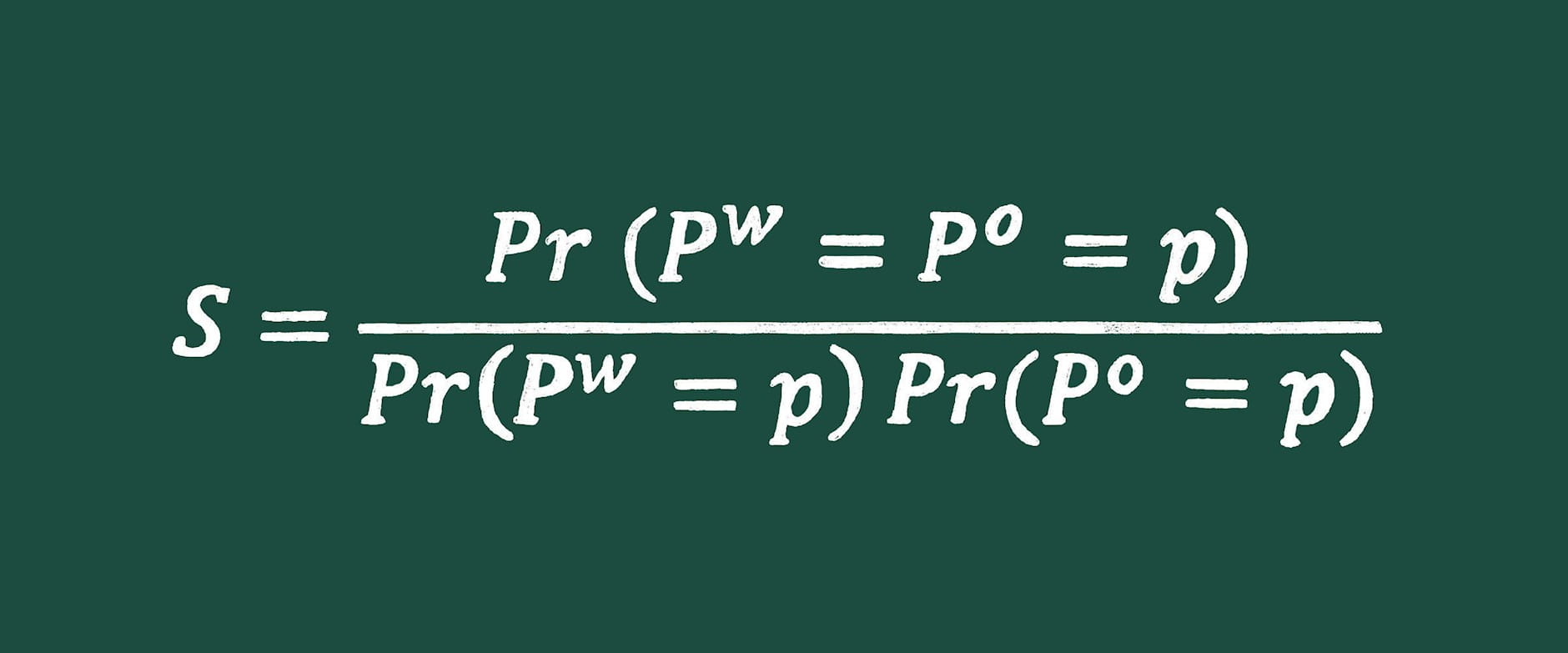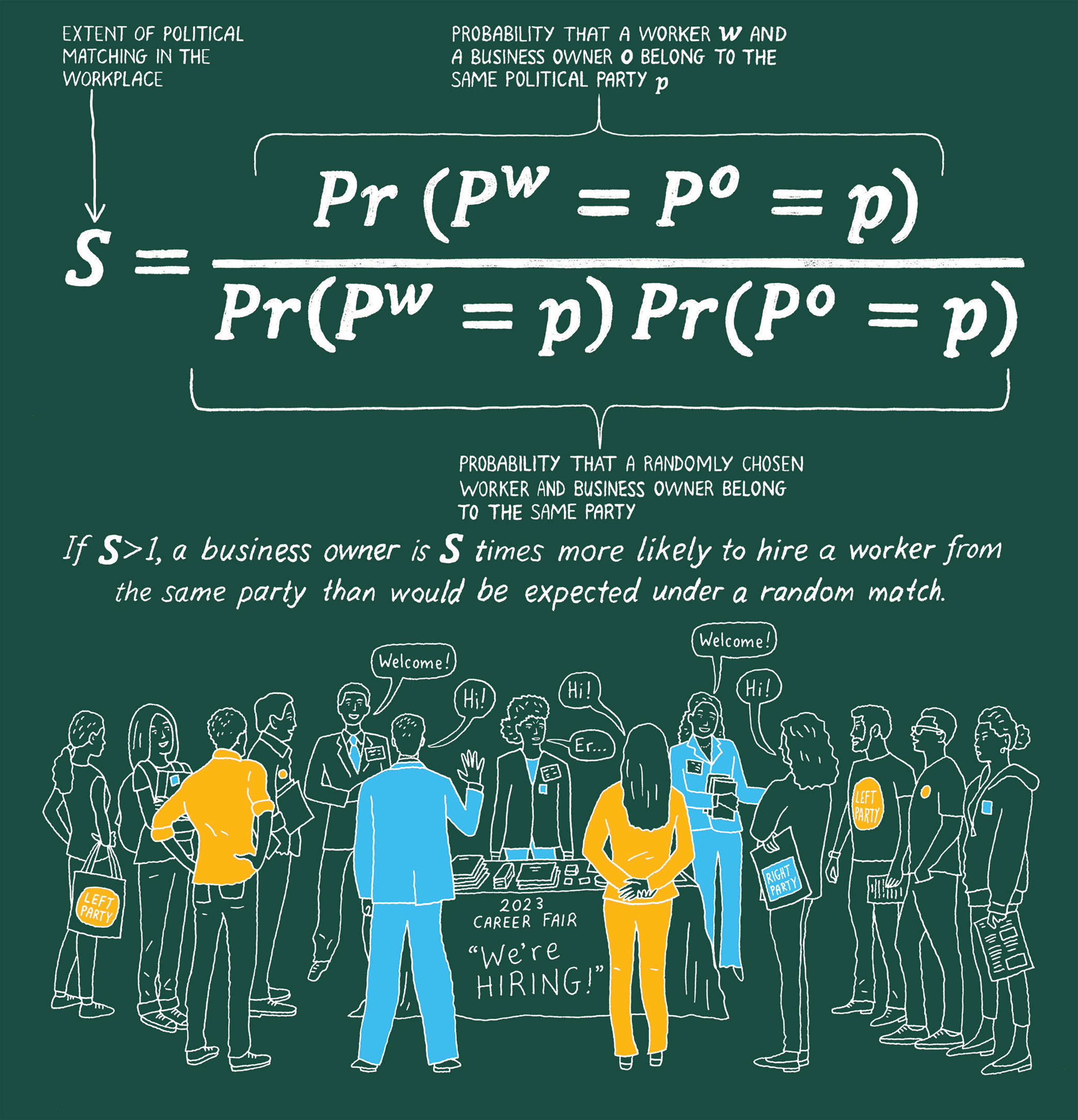
How Will A.I. Change the Labor Market?
Economists consider how the technology will affect job prospects, higher education, and inequality.
How Will A.I. Change the Labor Market?
Employers are expected to hire the person most qualified for a job, but they can be swayed by other factors, including a preference for workers who share their political views. This political bias can be more influential in hiring than gender or racial bias, according to an analysis of Brazil’s labor market by Chicago Booth’s Emanuele Colonnelli, EPGE Brazilian School of Economics and Finance’s Valdemar Pinho Neto, and Northwestern’s Edoardo Teso. The researchers measured the probability that a business owner in highly polarized Brazil would hire someone who identified with the same political party, relative to a random matching of owners and workers who happened to have the same views. They find that matches between workers and employers who belonged to the same party were on average 1.5 times more likely than an arbitrary pairing would predict, far higher than race- or gender-related matches. To learn more, read “Bosses, Check Your Political Bias When Hiring.”

Illustration by Peter Arkle

Economists consider how the technology will affect job prospects, higher education, and inequality.
How Will A.I. Change the Labor Market?
The central bank could bear some blame for financial markets’ current fragility.
How US Fed Policy Could Prolong Inflation
Author Martin Gurri joins the Capitalisn’t podcast to discuss why public demonstrations of outrage have become more commonplace in recent decades.
Capitalisn’t: How the Elites Are Losing ControlYour Privacy
We want to demonstrate our commitment to your privacy. Please review Chicago Booth's privacy notice, which provides information explaining how and why we collect particular information when you visit our website.